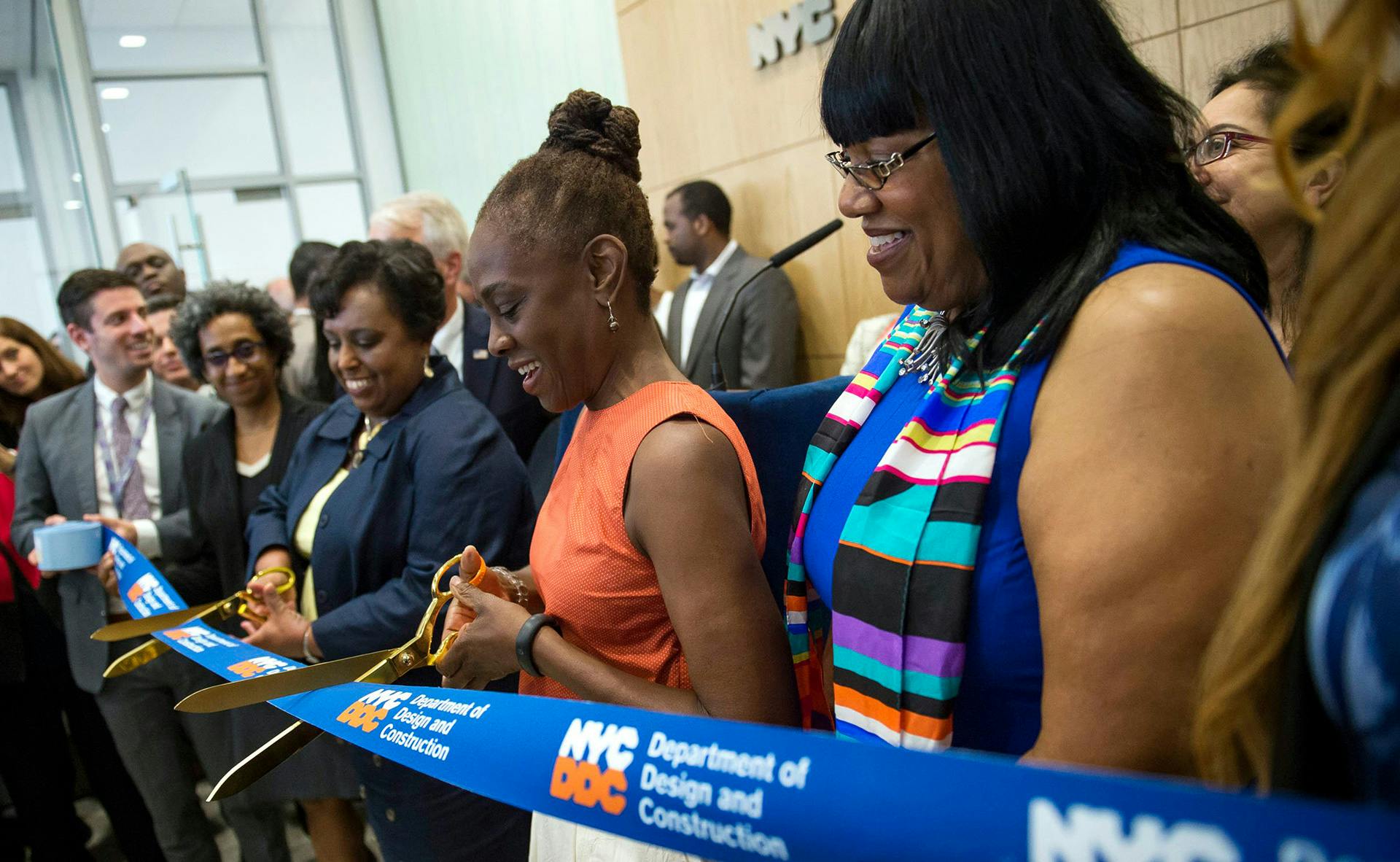Collaboration between disparate services can transform people’s lives. I remember a case during my child psychiatry training—a six-year specialized regimen after medical school—where I treated “Anna” (not her real name), an 11-year-old daughter of a mother of two children. Anna’s father had been emotionally and physically abusive to his wife, Anna’s mother, during Anna’s early childhood years and was now no longer in their lives. I began seeing Anna because her mother was concerned about her anxiety. But what became clear to me during my earliest sessions with Anna was not so much her anxiety, but more so her mother’s extreme levels of anxiety.
Anna’s mother frequently called in between sessions, often to vent about Anna’s behaviors, but also requiring reassurance about her parenting. She became easily tearful during these calls, and in an individual parent session revealed her domestic violence history, which involved name calling, social isolation, and being punched repeatedly. Anna’s mom was living in a constant state of fear even after her ex-husband had left. With encouragement, Anna’s mom was referred to her own individual mental health treatment, but she faced difficulties in finding someone who could see her in a timely fashion (she was initially put on a six-month waiting list), as well as someone who was both affordable and knowledgeable about trauma.
Once Anna’s mother entered treatment herself, she called less to complain during Anna’s treatment, and I knew that meant she was doing better. But more importantly, Anna was sleeping better, she said her mother was too. By providing Anna’s mom with resources that supported her own well-being in dealing with her domestic violence history, Anna’s mom improved the socio-emotional health of Anna and in turn her entire family and community.
The World Health Organization (WHO) calls intimate partner violence (IPV), a.k.a. domestic violence, a global public health problem of epidemic proportions, affecting millions of individuals and families worldwide. Within the United States, the Centers for Disease Control reports that one in three women and one in four men will experience physical and/or sexual violence by a partner or sexual violence by a non-partner. According to the National Intimate Partner and Sexual Violence Survey, within the United States, approximately 24 people per minute are victims of rape, physical violence, or stalking by an intimate partner—which adds up to more than 12 million women and men over the course of a year. That is the population of New York City and Los Angeles combined!
High as they may seem, these figures from large-scale studies underestimate the true prevalence of IPV due to underreporting and failure to include nonviolent acts such as psychological harm, or even omission of outright violent acts such as strangulation, which is a common but often unrecognized form of abuse. With the #MeToo movement, such behavior, which was once thought only to be a “family affair,” is no longer confined to secrecy, but becoming a community, societal, and worldwide affair.
Not only does IPV lead to physical injury and adversely affect sexual and reproductive health, it also leads to lasting mental health consequences for the survivor as well as for the children. According to WHO, IPV survivors are more likely to report diminished self-esteem, depression, anxiety, post-traumatic stress disorder (PTSD), substance use disorder, and even death by suicide. Several studies have concluded that harm to children exposed to IPV includes the effects from the experience of witnessing abuse, as well as effects from parenting that is compromised. For children, witnessing such violence can contribute to the development of psychological distress, behavior disorders, disturbances in self-regulation, difficulties in social interaction, and disorganized attachment. In fact, recent research suggests that witnessing abuse carries the same risk of harm to children's mental health and learning as being abused directly.
Additionally, IPV alters caregiving parenting styles and adversely affects the mental health of the caregiver; those who develop adverse mental health outcomes from IPV are even more at risk for poor parenting skills. For example, maternal depression has been found to negatively impact maternal self-efficacy (i.e. a mother’s ability to be sensitive and responsive to a child).
However, children exposed to IPV exhibit quite variable outcomes, and not all are traumatized. Data suggests that protective factors such as supportive parenting can stabilize and offset the ill effects of IPV exposure. Thus, improving the health of parents improves their parenting, and ultimately improves the health of children.
Despite strong evidence for associations between IPV and psychiatric disorders, the socio-emotional needs of IPV survivors continue to go unmet. While 85% of IPV survivors presenting to advocacy organizations in the United States report at least one mental health problem, only one-third have seen a mental health professional during the past year. In one group of IPV survivors, 40% reported a history of prior suicide attempt and of those, 36% never received mental health care. These data point to the significant structural and systemic barriers that prevent survivors from accessing mental health care. Some common barriers include perceived stigma associated with accessing services, financial barriers, decreased supply of mental health treaters leading to long waiting lists (sometimes up to six months to one year), lack of services within a geographic area, language limitations, poor quality of treatment, and feelings of being re-traumatized by the medical system.
Importantly, these obstacles are especially pronounced for minority women, who in the U.S. are less likely than white women to seek help from various formal and informal sources. With improved access and better treatment, we could prevent costly emergency room visits, which place a burden on a healthcare system that is insufficiently equipped to deal with both the mental health concerns and the non-mental health concerns of IPV. Yet, there are few models of psychiatric service provisions directly aimed at treating these survivors who require knowledge of both systems.
A targeted intervention such as collaborative care—which has now become a recommended best practice to aid patient populations in need of multiple treatment intervention—is a highly impactful solution. Collaborative care models lead to improved access to care, making it easier for people to see providers, and they support evidence-based practice that pools resources together in order to provide high-quality care. Within the mental health field, collaborative care reduces stigma and shows that mental health disorders are preventable, treatable, and often curable.
New York City is tackling this very issue with a tripartite partnership with private, public, and academic collaboration that embeds skilled mental health clinicians within the Family Justice Center (FJC), a resource center for survivors of IPV and sex trafficking. This new collaboration is funded by THRIVE NYC, an initiative from First Lady of New York City, Chirlane McCray, and provides free, evidence-based treatment, including psychotherapy, skills-based learning, and psychopharmacology in a trauma-informed and culturally informed capacity. New York boasts the largest network of FJCs in the country, operated by the Mayor’s Office to End Domestic and Gender Based Violence (ENDGBV), and this is also the nation's first such integrated mental health model. By bringing experienced mental health clinicians to the community, the program is meeting the survivors where they are, and where they feel the safest.
Not only do the survivors continue to report feeling safe physically, but they also report feeling safe emotionally with this added resource. These survivors report decreased barriers to care: seeing a mental health specialist within one week of a request (compared to being on a waitlist of six months to one year); 71% report improved sleep, 77% report improvement in relationships especially with their children, and of those who reported suicidal thoughts, all of them reported decreased thoughts of self-harm.
Other than improving the outcomes of the survivors, the program indirectly improves the lives of those doing the work. The staff at the Family Justice Centers state that they feel more equipped and competent in their skills. Having a mental health team on site lifts the socio-emotional health of the agency and fosters an environment of well-being for all. Furthermore, a byproduct of this initiative is partnering with city hospitals to provide the mental health treatment imbedded within the FJC. By doing so, mental health clinicians learn about trauma, and trauma advocates learn about mental health in a bidirectional educational opportunity that breaks down the stigma of both mental health and IPV. It’s a win-win for everyone. Partnering with city hospitals, where the future physicians of the country are being trained, helps facilitate a generational change where members of our society at large can more readily recognize the devastating effects of IPV—and do something about it.
To this day, I’m grateful that Anna’s mother was able to receive treatment. She improved, and so did Anna. However, such care should not be so difficult to access, and should be readily available to all. There are plenty more Annas and Anna’s mothers out there not receiving treatment or adequate treatment. The enormity of IPV consequences affects us all and requires integrated services—not only help people like Anna, but also to help our community to heal. Mental health supports for caregivers are resources that foster those relationships and positive environments for children. When we support health and well-being, we help everyone reach their full potential and contribute to their communities. If we invest in systems to ensure all people can get the treatment they need, we will have a healthier and stronger society.
___
Dr. Obianuju O. Berry is a NIMH T32 Postdoctoral Fellow for Translational Research in Child Psychiatric Disorders at the Columbia University Division of Child and Adolescent Psychiatry, where she also practices as a child/adolescent and reproductive psychiatrist.











